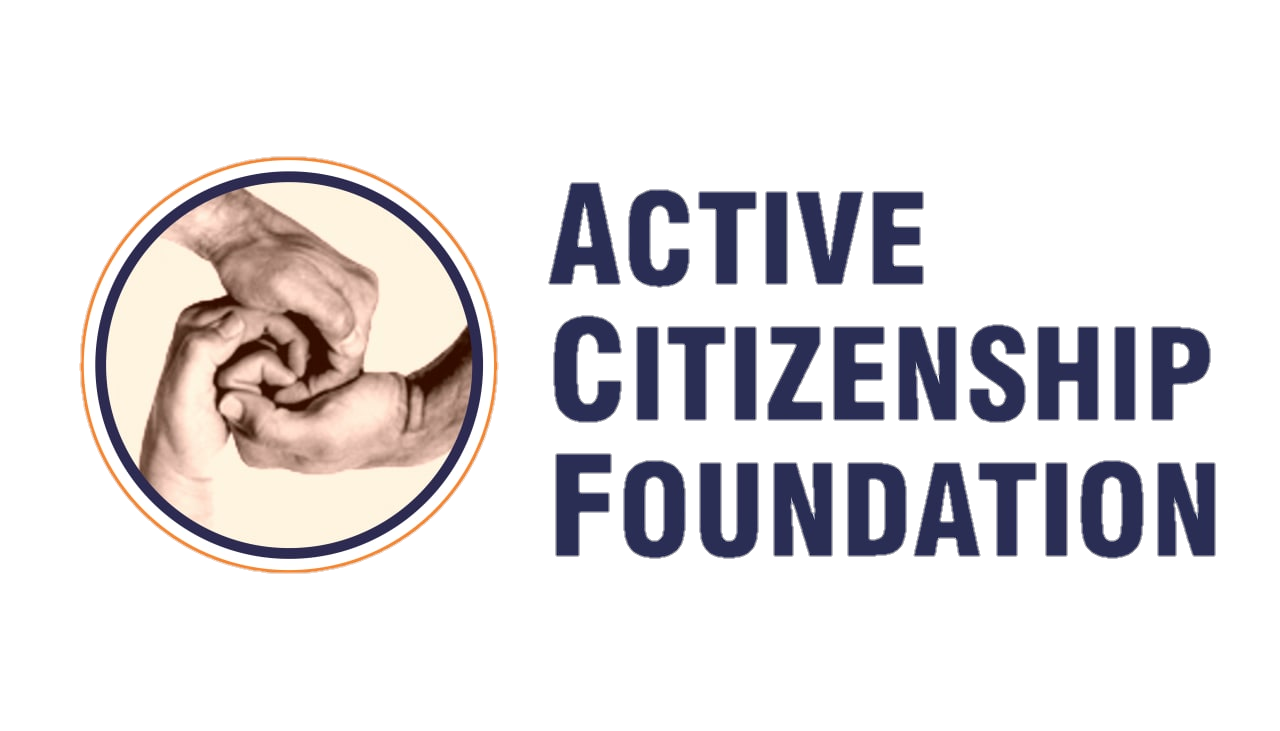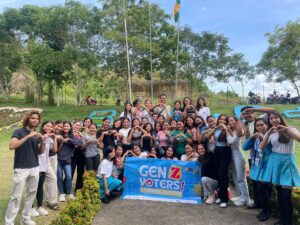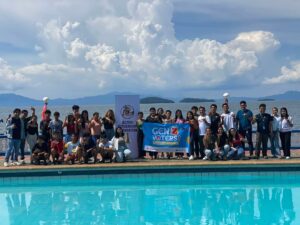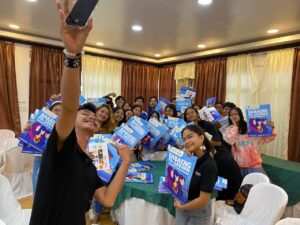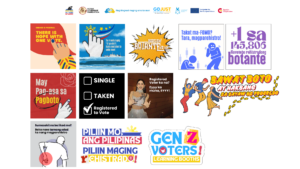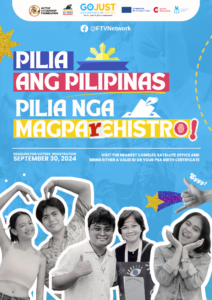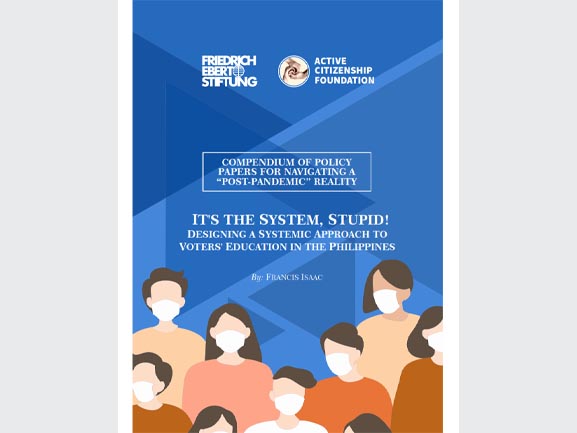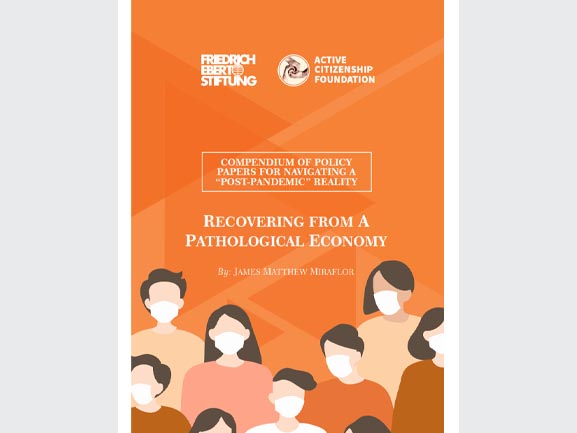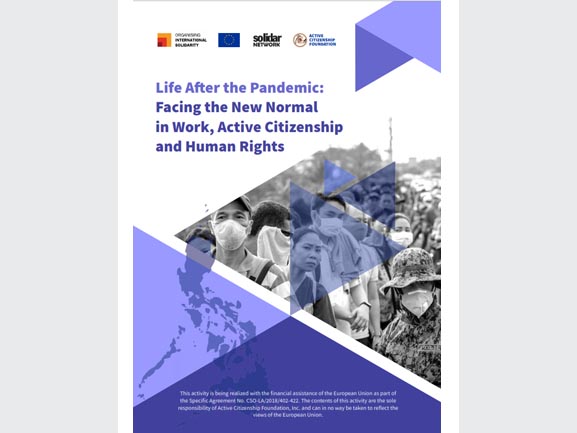Generation Z (Gen Z) voters are emerging as a formidable force in Philippine elections, significantly influencing the country’s democratic landscape. In 2019, they comprised 16% of registered voters, a number comparable to the largest voting provinces. By 2022, this number had risen to 20%, highlighting their increasing electoral influence. As the 2025 elections approach, Millennials and Gen Z will make up 63% of the voting population, with Gen Z alone accounting for nearly 29%. This demographic shift presents both an opportunity and a challenge, as young voters have the potential to drive transformative change, yet many remain unregistered or disengaged from the electoral process.
Recognizing the urgency of mobilizing young voters, the Commission on Elections (COMELEC) set a target of registering over 3 million new voters before the 2025 elections. Remarkably, by the end of the registration period, over 4 million Gen Z voters had been successfully registered. However, beyond registration, sustained engagement remains essential. To address this, Active Citizenship Foundation (ACF), in partnership with the First Time Voters Network, Go Just, the Commission on Human Rights (CHR), the European Union, and the Spanish Agency for International Development Cooperation, launched a nationwide initiative aimed at empowering young people to take charge of their political future.
A Targeted, Data-Driven Approach to Youth Voter Mobilization
The project’s core objective is to increase youth voter registration and engagement through an evidence-based, community-centered approach. By leveraging behavioral science principles, particularly the MINDSPACE framework, the initiative aligns voter mobilization efforts with the values and motivations of Gen Z. This strategy incorporates elements such as personal identity, social norms, and visibility to encourage voter registration and long-term civic participation. Digital campaigns and educational materials play a key role in resonating with young Filipinos, many of whom are actively engaged in social and political advocacy through online platforms.
To ensure maximum impact, the project identified and focused on eight key areas, each representing distinct Gen Z demographics:
Bohol – Young tourism workers
Lanao del Norte – Moro youth
Naga – Young journalists
Navotas – Young artists
Oriental Mindoro – Young women
Tacloban – First-time voters
Tarlac – Student councils
Zamboanga – Young workers
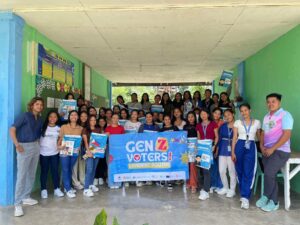
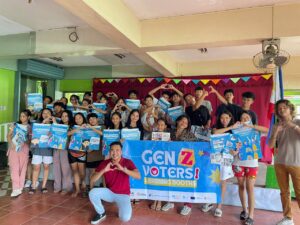
Focus group discussions (FGDs) were conducted with local Gen Z community members to gather insights on their perceptions of voter registration. These discussions informed the co-design of educational materials that reflected the language, culture and lived experiences of young voters, ensuring the campaign resonated with them.
Innovative and Engaging Educational Materials
Following the FGDs, the project developed a suite of Information, Education, and Communication (IEC) materials, including posters, stickers, and brochures, strategically designed to engage and motivate young voters. Guided by the MINDSPACE framework, these materials emphasized behavioral factors such as social norms, salience, and ego, ensuring their effectiveness in encouraging civic participation. The validation process further refined these materials to maximize their impact, making voter education more accessible and compelling for Gen Z.
In each area, the targeted groups were the primary focus, and the IEC materials were carefully designed to reflect local language and cultural nuances, making them more relatable and engaging. Additionally, the campaign leveraged social media platforms with content tailored to the interests and digital habits of young voters, effectively amplifying the message of voter participation and civic responsibility
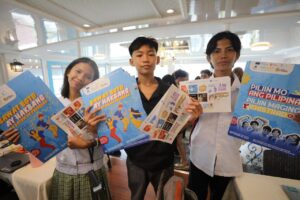
Empowering Youth Beyond Voter Registration
The project’s significance extends beyond voter registration as it fosters a long-term culture of civic engagement among young Filipinos. By actively participating in decision-making processes, Gen Z voters can play a critical role in electing leaders who uphold human rights and advocate for progressive governance.
Key insights from the initiative revealed that many young Filipinos deeply care about issues such as poverty, education, and health, both at the national and local levels. However, despite their strong desire to be involved in civic activities, many feel marginalized. Notably, research indicated that the likelihood of youth participation is closely tied to personal identity and self-esteem, with many respondents expressing that engaging in civic duties enhances their sense of belonging and purpose.
A Call to Action: Strengthening Democracy Through Youth Participation
With the national and local elections fast approaching in May 2025, this initiative serves as a crucial step in empowering young voters to shape the country’s political future. The project’s success highlights the impact of targeted voter mobilization strategies rooted in behavioral science. Its achievements serve as a blueprint for other organizations, policymakers, and stakeholders aiming to increase youth participation in the democratic process. By adopting similar approaches, institutions can ensure that young voters are not only registered but also actively involved in shaping governance and policymaking.
By fostering a sense of ownership in the democratic process, this project empowers young voters to become informed, responsible citizens who drive meaningful change. As funders and stakeholders look for impactful initiatives, this project serves as a model for effective youth engagement, strengthening democracy by equipping the next generation with the power to shape their future.

